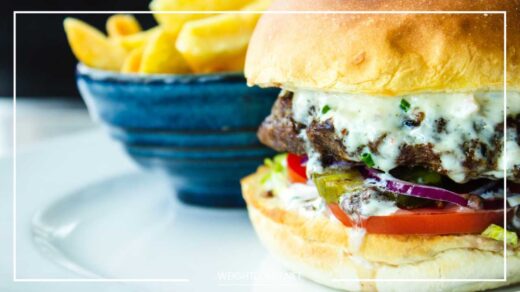Benefits of Keeping a Food Journal

Food Journal
Unlock Your Health Potential: The Benefits of Keeping a Food Journal
We all yearn for a life brimming with vitality and well-being. Yet, navigating the complex world of nutrition and achieving lasting dietary changes can feel like scaling a mountain blindfolded.
Often, the culprit behind our struggles lies in the discrepancy between what we think we eat and what we actually consume.
This is where food journaling emerges as a beacon, a simple yet powerful tool that can illuminate the path towards a healthier you.
In this comprehensive guide, we’ll delve deeper than ever before into the transformative power of food journaling. We’ll explore how this practice can empower you to:
Unveil Hidden Patterns in Your Eating Habits:
Our memory, particularly when it comes to the intricate details of daily meals, is far from infallible. Food journaling steps in as a reliable chronicler, providing an objective record of your daily intake.
This record unveils patterns you might have previously missed. Do you find yourself unconsciously reaching for sugary snacks in the afternoon slump? Perhaps social gatherings trigger overeating.
By meticulously tracking your food and drink consumption, along with the time, location, and even your emotional state, you can identify these triggers and pinpoint areas for improvement.
Imagine the power of recognizing a pattern of stress-induced mindless munching – this knowledge equips you to develop healthy coping mechanisms instead of succumbing to unhealthy snacking habits.
Become a Master of Weight Management:
Whether your goal is to shed unwanted pounds, maintain a healthy weight, or fuel your body for muscle gain, food journaling is your secret weapon.
You gain the ability to meticulously track your calorie intake and macronutrients (carbohydrates, protein, fat), ensuring perfect alignment with your specific goals.
As you become more mindful of portion sizes, you can naturally adjust your eating habits to create a calorie deficit for weight loss or a surplus for muscle building.
Food journaling empowers you to take control of your weight management journey, transforming it from a frustrating battle into a strategic and informed process.
Unmask Food Sensitivities: The Silent Culprit:
Food intolerances and allergies can manifest in a multitude of ways, often masquerading as seemingly unrelated symptoms like bloating, gas, headaches, fatigue, or even skin issues. Food journaling allows you to meticulously track your symptoms alongside the foods you consume.
This information becomes invaluable in identifying potential food sensitivities. By working with a healthcare professional or registered dietitian, you can leverage your food journal to develop an elimination diet, a systematic approach that helps pinpoint the culprit. Imagine the freedom of finally identifying the food that has been causing you discomfort for years!
Cultivate the Art of Mindful Eating:
Mindless eating, the unconscious act of consuming food while distracted by screens or on-the-go activities, is a common pitfall that can sabotage even the most well-intentioned dietary plans.
Food journaling fosters mindful eating by prompting you to pause and reflect on what you’re putting into your body.
This act of conscious awareness encourages you to slow down, savor your food, and tune into your body’s natural hunger and fullness cues.
Over time, mindful eating becomes second nature, allowing you to develop a healthier relationship with food and make conscious choices that nourish your body and mind.
Unlock the Secrets of a Thriving Gut:
The gut microbiome, the trillions of bacteria residing within your digestive system, plays a central role in digestion, immunity, and overall health.
Food journaling allows you to become a detective, tracking your intake of prebiotics (foods that nourish gut bacteria) and probiotics (live bacteria found in fermented foods).
By identifying which foods promote a healthy gut microbiome, you can make informed dietary choices that support optimal gut health.
Imagine the potential of boosting your immunity, improving digestion, and even enhancing your mood through the power of mindful eating!
Fuel Your Athletic Performance:
For athletes, food journaling is a game-changer. By meticulously tracking your intake of carbohydrates, protein, and healthy fats, you can optimize your pre-workout, during-workout, and post-workout meals to fuel your training and recovery.
This allows you to perform at your peak and achieve your athletic goals. Additionally, you can identify foods that cause sluggishness or digestive issues and adjust your diet accordingly. Imagine the competitive edge you’ll gain by ensuring your body has the precise nutrients it needs to perform at its best.
Empower Management of Chronic Conditions:
Certain chronic conditions, such as diabetes, heart disease, and high blood pressure, can be significantly impacted by diet. Food journaling empowers you to monitor your intake of sugar, sodium, and saturated fat, all of which can exacerbate these conditions.
By working with a healthcare professional, you can tailor your food journal to track specific nutrients and make dietary adjustments that effectively manage your condition.
Imagine the potential of taking control of your health and well-being through the power of informed dietary choices.
Getting Started with Food Journaling: Your Personalized Roadmap
Food journaling doesn’t have to be a daunting task. Here are some practical tips to embark on your journey:
-
Choosing Your Method: There’s no single “best” way to food journal. Explore different methods to find what resonates most with you. Here are some popular options:
- Pen and Paper: This classic method offers a sense of tangibility and allows for creative expression. Decorate your journal, use colorful pens, or include sketches of your meals.
- Mobile Apps: Numerous user-friendly apps offer features like food databases, calorie tracking, and progress charts. Explore options that integrate seamlessly with your lifestyle.
- Spreadsheets: For the tech-savvy, spreadsheets provide a high degree of customization. You can create detailed templates to track specific nutrients or dietary goals.
-
Tracking the Essentials: While the specifics may vary based on your goals, some core elements should be included in your entries:
- Date and Time: This helps identify patterns related to specific times of day or days of the week.
- Food or Beverage Consumed: Be as specific as possible, including brand names and portion sizes. Utilize tools like measuring cups or online nutrition databases for accuracy.
- Estimated Portion Size: Visual aids can be helpful. Imagine your plate divided into sections – half for vegetables, a quarter for protein, and a quarter for carbohydrates.
- How You’re Feeling: Track your emotional state before, during, and after eating. This can reveal connections between emotions and food choices.
-
Honesty and Consistency are Key:
- Honesty: Strive for complete honesty in your entries. Food journaling is a tool for self-improvement, not judgment.
- Consistency: Aim for daily entries, even if it’s just a quick note. The more data you collect, the more insights you’ll gain. Consistency allows you to identify long-term trends and track your progress over time.
-
Review and Reflect: Don’t just record – analyze! Regularly revisit your food journal entries. Look for patterns, identify areas for improvement, and celebrate your successes.
Taking Food Journaling to the Next Level:
-
Spice it Up! Don’t let your food journal become monotonous. Here are some ways to keep it engaging:
- Include Recipes: Jot down recipes of healthy meals you discover or create.
- Add Inspirational Quotes: Motivate yourself with quotes about healthy living or mindful eating.
- Set Fitness Goals: Integrate your food journal with your fitness goals, tracking your progress and celebrating milestones.
-
Seek Support: Consider joining an online food journaling community or forum. Sharing your experiences and connecting with others on a similar journey can be a source of motivation and inspiration. Additionally, consulting with a registered dietitian can provide personalized guidance and support in tailoring your food journal to your specific needs.
-
Make it Fun! Let your personality shine through! Decorate your journal, use colorful pens, or add stickers to celebrate milestones. The more enjoyable the experience, the more likely you are to stick with it.
By incorporating these tips, you can transform food journaling from a chore into a fun and rewarding experience that paves the way for a healthier, happier you.
Remember, food journaling is a journey, not a destination. Embrace the process of self-discovery and celebrate the small wins along the way.
As you become more mindful of your eating habits and the impact they have on your body and well-being, you’ll be empowered to make informed choices that fuel your journey towards a vibrant and fulfilling life.
Additional Food Journaling Prompts to Spark Reflection:
- How did this meal make me feel physically and emotionally?
- Was I truly hungry before I ate this?
- Could I have satisfied this craving with a healthier alternative?
- What distracted me while I was eating?
- Am I well-hydrated today?
Remember, consistency is key! The more you utilize your food journal, the more valuable a tool it will become on your path to optimal health and well-being.
Unveiling the Nuances: Advanced Food Journaling Techniques
As you gain experience with food journaling, you can delve deeper to glean even more valuable insights. Here are some advanced techniques to consider:
- Track Blood Sugar Levels: If managing diabetes or blood sugar concerns is a goal, consider incorporating blood sugar monitoring into your food journal. This allows you to observe the impact of specific foods on your blood sugar levels and make informed dietary choices.
- Explore Food Sensitivities in Detail: Once you suspect a food sensitivity, use your food journal to conduct a detailed elimination diet. Eliminate the suspected food for a specific period, then gradually reintroduce it while carefully monitoring your symptoms. This approach can help pinpoint the exact culprit and empower you to adjust your diet accordingly.
- Track Macronutrient Ratios: For athletes or individuals with specific fitness goals, tracking macronutrients (carbs, protein, fat) provides a deeper understanding of your fuel intake. Experiment with different ratios to find what optimizes your energy levels and training performance.
- Mindful Eating Exercises: Use your food journal to document your experience with mindful eating practices. Before a meal, take a few minutes to observe your hunger cues, set an intention for mindful eating, and eliminate distractions. During the meal, savor each bite, focusing on the taste, texture, and aroma of your food. After eating, note your level of satiety and any emotional shifts. Over time, these journaling exercises can strengthen your mindful eating practice.
- Track Sleep Patterns: Sleep quality can significantly impact hunger hormones and eating habits. Consider incorporating sleep tracking into your food journal to identify potential connections. Observe if poor sleep quality leads to increased cravings or changes in portion sizes.
Food Journaling and Mental Health:
Food journaling can be a powerful tool for managing mental health concerns. Here’s how:
- Identify Emotional Eating Triggers: Food can often be used as a coping mechanism for stress, anxiety, or depression. By tracking your emotions alongside your food intake, you can identify patterns of emotional eating. This awareness empowers you to develop healthier coping strategies.
- Monitor Mood: Track your mood throughout the day and observe any correlations with food choices. Does specific food consumption influence your mood? Understanding these connections can help you make informed dietary choices that support emotional well-being.
- Celebrate Non-Scale Victories: Don’t solely focus on weight loss. Celebrate non-scale victories like increased energy levels, improved digestion, or a more positive relationship with food. Focusing on these positive changes can enhance motivation and maintain consistency with your food journaling practice.
Food Journaling Beyond the Individual:
Food journaling can extend its benefits beyond the personal sphere. Here are a few ways:
- Family Food Journaling: Encourage family members to participate in a shared food journal. This fosters open communication about food choices, promotes healthy eating habits for everyone, and can be a fun family activity.
- Meal Planning and Budgeting: Utilize your food journal to track weekly food expenditures. Analyze your data to identify areas for saving and plan future meals based on budget constraints.
- Food Waste Reduction: Track uneaten portions or expired food items to identify areas for improvement. This awareness can lead to smarter grocery shopping practices and reduced food waste.
Remember, food journaling is a personal journey. Experiment with different techniques, find what works best for you, and have fun exploring the world of mindful eating. As you embark on this journey, keep these inspirational words in mind:
“Food is not just sustenance for the body; it is for the soul as well.” – Marcus Aurelius
With dedication and a little creativity, food journaling can become the key to unlocking a healthier, happier, and more mindful you.

















